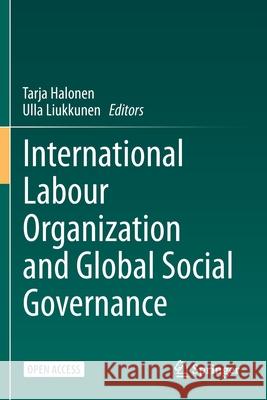International Labour Organization and Global Social Governance » książka
topmenu
International Labour Organization and Global Social Governance
ISBN-13: 9783030554026 / Angielski / Miękka / 2021 / 158 str.
International Labour Organization and Global Social Governance
ISBN-13: 9783030554026 / Angielski / Miękka / 2021 / 158 str.
cena 402,53
(netto: 383,36 VAT: 5%)
Najniższa cena z 30 dni: 385,52
(netto: 383,36 VAT: 5%)
Najniższa cena z 30 dni: 385,52
Termin realizacji zamówienia:
ok. 22 dni roboczych.
ok. 22 dni roboczych.
Darmowa dostawa!
This open access book explores the role of the ILO (International Labour Organization) in building global social governance from multiple and mutually complementary perspectives. It explores the impact of this UN´s oldest agency, founded in 1919, on the transforming world of work in a global setting, providing insights into the unique history and functions of the ILO as an organization and the evolution of workers’ rights through international labour standards stemming from its regulatory mechanism.
The book examines the persistent dilemma of balancing the benefits of globalization with the protection of workers. It critically assesses the challenges that emerge when international labour standards are implemented and enforced in highly diverse regulatory frameworks in international, regional, national and local contexts. The book also identifies feasible ways to achieve more inclusive labour protection, putting into perspective the tension between the economic and the social in the ILO’s second century of operation. It includes reflections on the work of the ILO World Commission on the Social Dimension of Globalisation by Tarja Halonen, who as President of Finland co-chaired the Commission with Benjamin William Mkapa, President of Tanzania.
Written by distinguished experts and scholars in the fields of international labour law and international law, the book provides an insightful and in-depth analysis of the role of the ILO as an international organization devoted to decent work and social justice. It also sheds light on tripartism and its particular role in the work of the ILO, examining the challenges that a profoundly changing working life presents in terms of labour protection and social justice, and examining the transnational dimension of labour law. Lastly, the book includes a postscript by Nobel economics laureate Professor Joseph E. Stiglitz.











